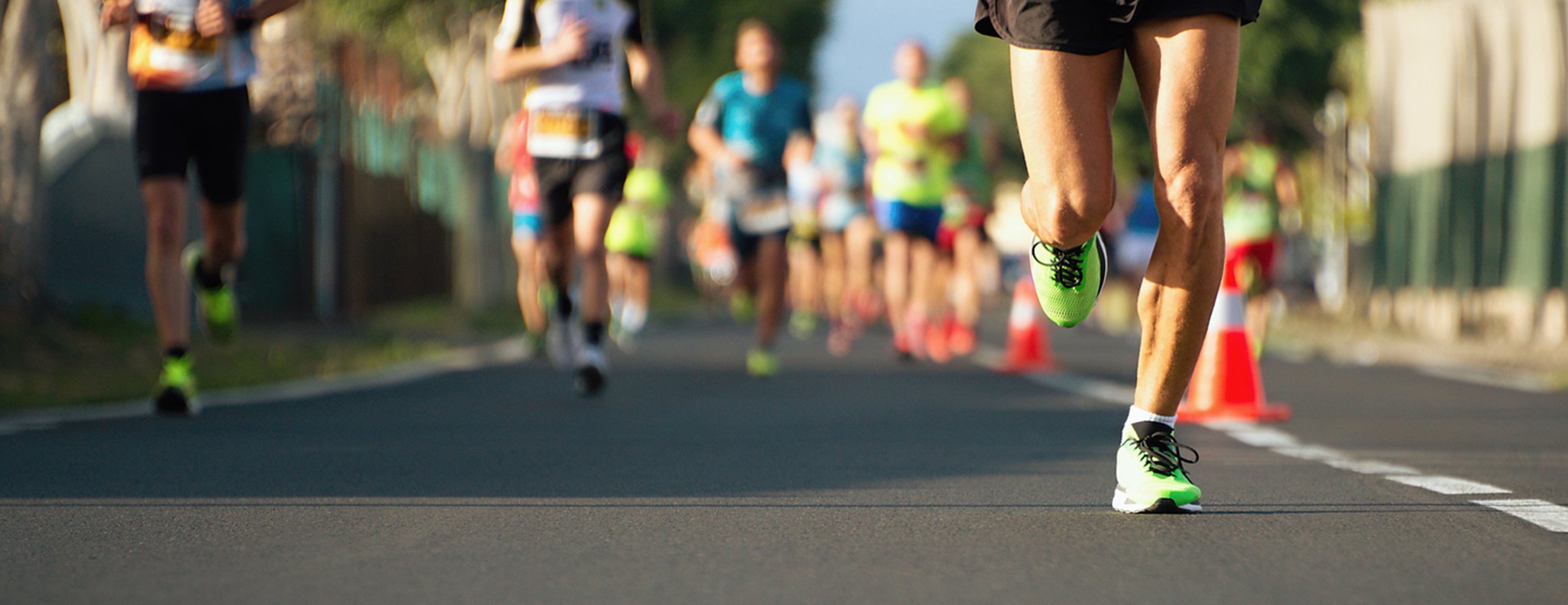
Running a Marathon: Race Day Success
After the hard work of training, you'll probably be anxious and excited for the big event – the actual marathon. Here are some tips for the day of the race that will help you to be prepared and ready for any unforeseen glitches.
Stay hydrated
Hydration should not begin the morning of the race. Instead, you should make a conscious effort to stay well hydrated at least 48 hours before the start of your marathon. The American College of Sports Medicine recommends drinking 5 to 12 ounces of fluids every 15 to 20 minutes during a marathon, although this is often difficult to accomplish and can result in over hydration if your sweat loss is low. Therefore, it is recommended that you learn how much your body needs to consume to stay well hydrated during your training period, especially on the long runs. Checking your weight before and after a long run to make sure that you haven't lost more than 2 percent of your body weight, and checking that your urine is not too concentrated (dark yellow) are simple ways to assess your hydration needs.
To hydrate before a marathon, try drinking two 8-ounce glasses of water or sports drink exactly two hours before the run starts so that by the time the race begins, the fluids will have been absorbed into your system. If you think you may take longer than five hours to run the marathon, keep in mind that your sweat losses will be less, and so you will not have to drink as much fluid before the race.
Eat right
Eat at least 300 calories an hour before the race starts. Test out your food choices during your training, so that you know which foods help fuel your body for a long run. And if you feel your body needs more food, eat your final snack no more than 30 minutes before the start of the race.
Wear the proper gear
Be sure to check the weather forecast and dress appropriately. However, it is important that you do not overdress, which can increase your risk for dehydration. Also, don't wear new shoes, socks, clothing or accessories for the race. Everything you wear should be well broken in and have gone through a test run.
Check the course
It is highly recommended that you review the marathon course before race day. If you live close to where the marathon will take place or have time when you arrive in town, it is helpful to drive the entire course, noting any landmarks or difficult patches. If you are not able to review the course yourself, see if you can order a video of the course or talk to people who have completed the marathon in the past.
Warm up
Before the marathon, make sure to go through a thorough warm-up that can include about 15 minutes of light jogging, followed by another 15 minutes of stretching. Some people like to incorporate a few strides at race pace to prepare their body for the race. It is important to follow the strides with constant, light movement, such as easy jogging, until the race begins – even if you are in a crowded start line – so that your muscles stay loose and do not tighten. At the same time, it is essential that you do not overexert yourself during your warm-up.
Give yourself plenty of time
You're likely to feel a bit nervous and anxious before the race, and the last thing you want is to be rushed. Wake up early enough to give yourself ample time to take care of everything you must do – dress, eat, shower, use the restroom, drink, etc. And, if you haven't already done so, coordinate a time and place to meet after the race with your family and friends. Also, depart for the marathon with enough time to be able to check your bag and warm up before the race begins.
Pace yourself
Most people experience an adrenaline rush while waiting for the race to begin, which may cause you to barrel out of the start line at an accelerated pace without even noticing it. It is important to pace yourself and pull back until you hit the 10-mile mark. You don't want to wear yourself out early on in the race.
UCSF Health medical specialists have reviewed this information. It is for educational purposes only and is not intended to replace the advice of your doctor or other health care provider. We encourage you to discuss any questions or concerns you may have with your provider.








